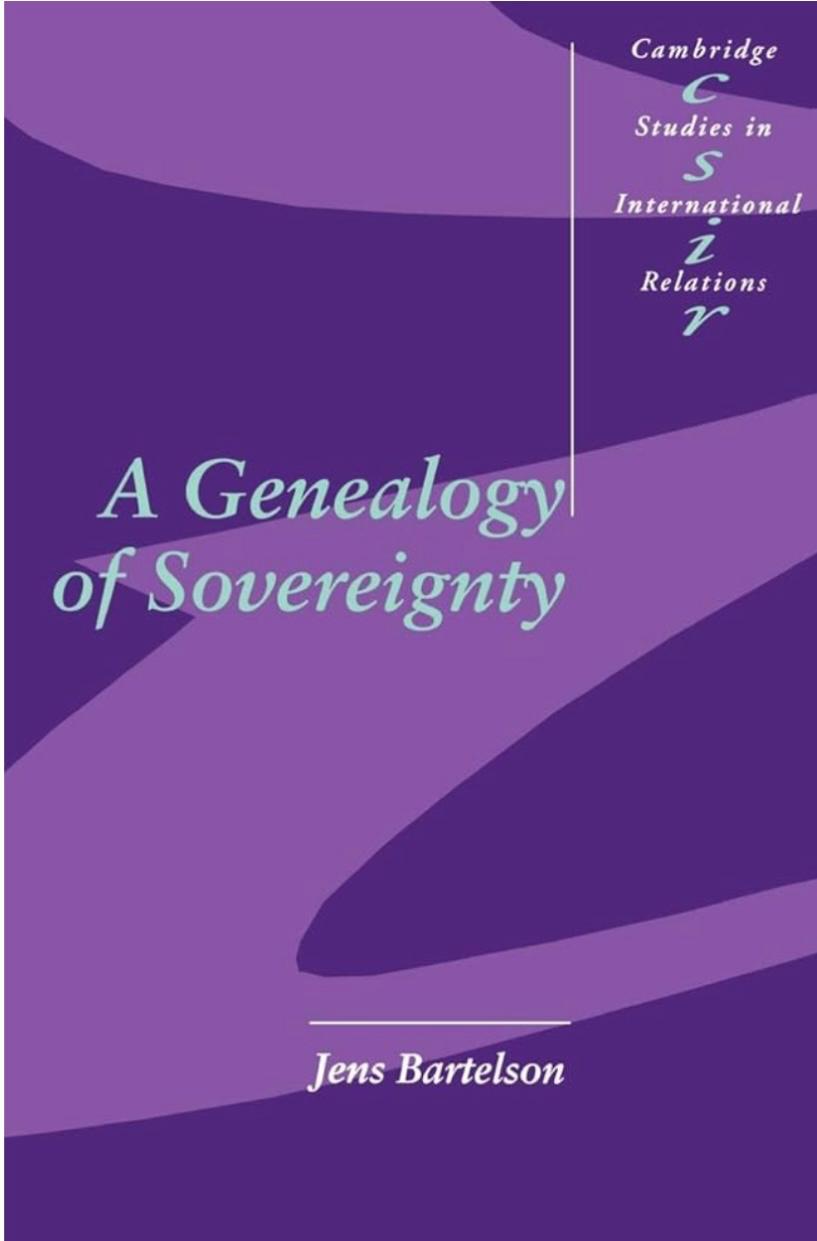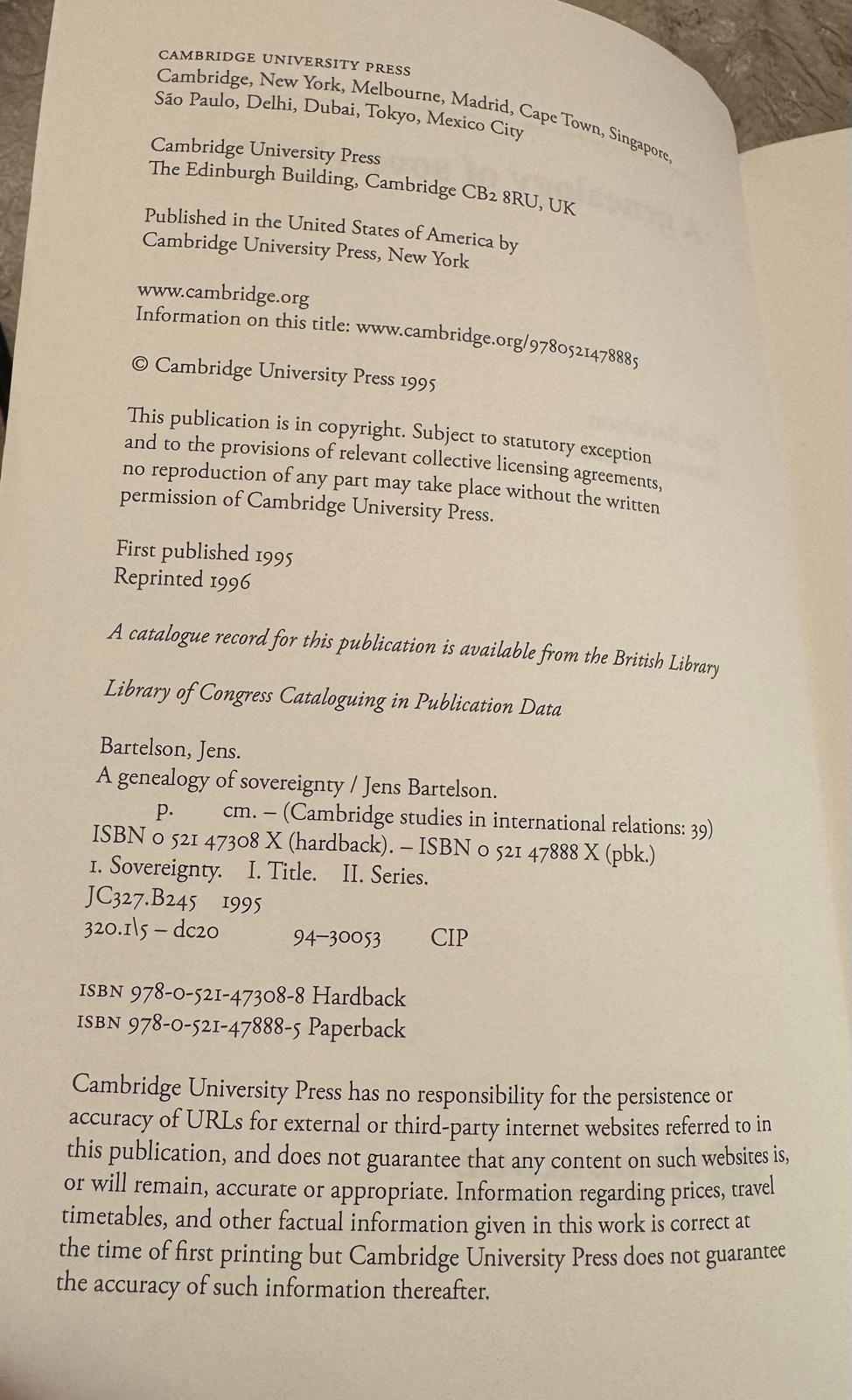“A Genealogy of Sovereignty” by Jens Bartelson delves into the foundational concept of sovereignty, which is central to both international relations theory and theories of state formation. Bartelson provides a rigorous critical analysis and conceptual history of sovereignty, specifically examining how the conventional separation of modern politics into domestic and international spheres has been shaped by its understanding.
The book is structured around an exploration of philosophical and political texts across three distinct historical periods: the Renaissance, the Classical Age, and Modernity. Bartelson contends that the concept of sovereignty and its role within political discourse are not static, but are instead conditioned by significant philosophical and historiographical discontinuities between these eras. He argues that sovereignty should be understood as a concept that is contingent upon (dependent on specific historical and intellectual contexts), rather than fundamental to (an unchanging basis of) political science and its history.
Through this genealogical approach, Bartelson challenges conventional understandings of sovereignty, demonstrating how its meaning and application have shifted over time, influenced by evolving ideas about authority, knowledge, and the nature of the state and its relationship with other entities. The work aims to show that sovereignty is not a timeless essence, but a constructed idea that has been continually reinterpreted and reorganized in response to historical and intellectual developments.



![Major works of Charles Dickens [Boxed set]](https://bakorbooks.com/wp-content/uploads/2025/03/WhatsApp-Image-2025-02-14-at-21.11.18_ae2b12d8-300x300.jpg)



Reviews
There are no reviews yet.